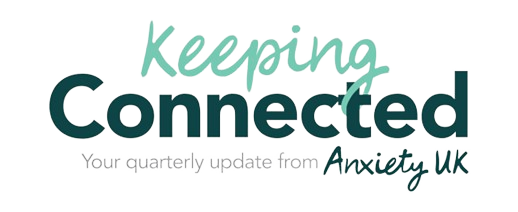Autism and anxiety (guest post)
by Michelle Nicholson
We know it is common for those with autism to experience anxiety. A survey from the National Autistic Society found that 94% of autistic adults reported experiencing anxiety (NAS survey).
Many individuals with autism, have different ways of experiencing the world. The condition itself is complex and not every autistic person is the same. However, there are many common traits/symptoms. Autistic individuals might find situations fearful or stressful that others might not, due to having a more sensitive nervous system and difficulties with emotional regulation. To help paint the picture, here are some common occurrences that can increase anxiety in autistic people:
Processing delays and social situations
We might have ‘executive functioning processing delays’ meaning we can find it hard to keep up in social situations due to taking in information slower. Sometimes we might freeze due to these delays, as our brain does not respond quickly enough.
These are some reasons that we might become anxious in social situations. Our anxiety and autism related issues become compounded. As a result, we become even less capable. It can feel like a vicious circle.
Sensory issues and noisy environments
We might also have ‘sensory processing issues’ which often exacerbate our anxiety. An example of this is we might be oversensitive to sound. Hearing everything louder can feel overwhelming.
When this happens, we might not be able to hear conversations properly and it can be distracting. We might struggle to listen and then it becomes more difficult to process information, leading to more anxiety. These are some reasons many autistic people struggle in noisy environments.
Overload and inability to concentrate
Whilst struggling, we might get ‘sensory overload.’ This can leave us feeling confused, it can affect our concentration. We might struggle with everyday activities that we usually find easy. Others might judge us for this. This can cause extra anxiety.
Extreme sensory experiences
One way to help with reducing sensory overload, and therefore anxiety, is looking after our sensory needs BEFORE becoming overwhelmed. This can reduce baseline anxiety levels and make it less likely to have a meltdown/shutdown.
Interestingly, depending on our mood/tiredness etc, an autistic individual’s sensory issues can switch from hypo (below normal) to hyper (excessive) and back again.
- When we are hyper-sensitive with our senses it can feel overwhelming and intense. An example of this is everything becoming too bright.
- When we are hypo-sensitive with our senses we can feel underwhelmed, slow-moving and heavy. An example of this might be banging into things and not feeling much pain.
Some examples of looking after sensory needs:
- If you find it too loud when out e.g. on the bus or supermarket, wear noise cancelling headphones. If you wear them as soon as you go out, rather than only putting them on when you are overwhelmed, then you can stop it before it starts.
- Wear sunglasses in the supermarkets if you do not like the lights.
- Do you find smells calming? Take a little roller-ball of perfume oil out with you.
- Have a little bag set up that you can reach before you leave the house, so your items are already there. You could even put fidget toys in your bag or pocket, if you are worried about what people might think.
- Weighted blankets are great for those who like tight hugs. Sleeping with a weighted blanket can really help if you are hypo-sensitive with touch. (Anxiety UK members get a discount on Remy weighted blankets, see here)
- Exercise is helpful. Again, if you want, wear headphones and have silence or music, depending on your preference.
- If you have arranged a night/day out, try to organise your week so you have little to do. Try and keep plenty of time free beforehand, so you can relax.
- If employed, you might not be able to look after your sensory needs as much, so try to think of other ways. Namely, taking perfume to work if smells calm you. (Have a look at the Mood Cards for Work here which give tips to manage anxiety at work)
- Take time to try new things and see what works best for you. Even if you think something might not work for you, give it a go, you might surprise yourself. This helps us to get to know ourselves better.
- For further inspiration have a search on the internet.
Most of all, don’t forget that autism gives us a lot of positive qualities too.
The views expressed by the contributor are not necessarily those of Anxiety UK, nor can we guarantee the accuracy of the information provided. If you would like to write a blog for AUK please email [email protected] for more information.
Anxiety UK is open to all, and our therapist and volunteers are equipped with the knowledge to help with special requirements and needs. Please just let us know if you have any accessibility issues and we will accommodate where we can to give you the anxiety support you require.









